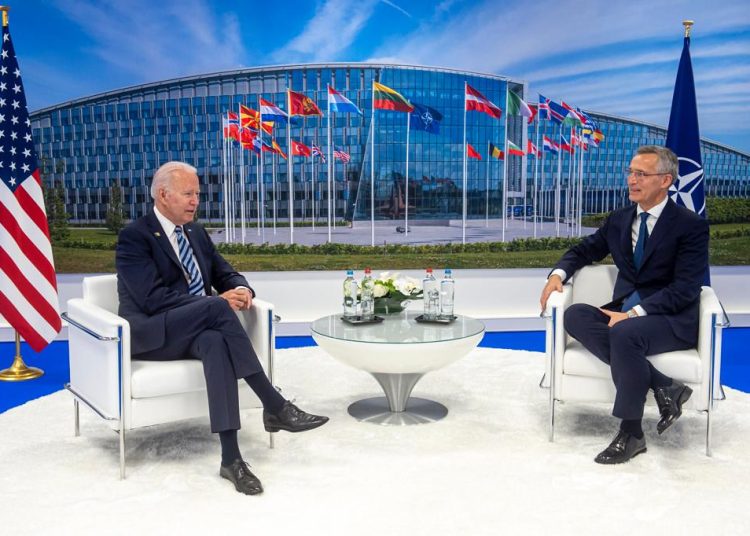Almost one year ago, President Biden—over the advice of his experts and top military advisors—put into motion the full U.S. retreat from Afghanistan. As the world watched, the president forced a rushed and haphazard exit from the country. In its wake, the murderous Taliban regime took power and reversed 20 years of U.S. and allied efforts and progress in the country virtually overnight, including returning horrific and barbaric policies against millions of women and girls. President Biden showed weakness, and the world took notice.
Only months later, Russian dictator Vladimir Putin began escalating his aggression against Ukraine. Putin, aware of Biden’s weakness demonstrated by the disaster in Afghanistan, was emboldened to take action that should have been unthinkable. Putin continued to take more aggressive steps than he had dared before, while President Biden waived mandatory congressional sanctions against the Nord Stream 2 oil pipeline. When it was clear Russia was mobilizing for another invasion of Ukraine, Biden’s response was too little, too late. In February, Putin gave the order and sent his troops and war machines across the Ukrainian border, starting the first large-scale land war in Europe since World War II. An emboldened Putin had no fear of a strong U.S. response or deterrent under this president, and he made his move. Putin’s invasion has had widespread costs, as food prices continue to rise and famine and starvation threaten our allies and partners around the globe.
Of course, one adversary has been watching the president’s decisions over the last 12 months more intently than any other: China. The Chinese Communist Party has ambitions to expand its sphere of influence not just in the East, but globally. Through their so-called “belt and road” initiative, China is providing loans to countries around the world that they see as opportunities to leverage, while continuing to build up their military capabilities and technologies. Most immediately, China is now looking toward their close-by island neighbor, Taiwan. Let’s be clear, their ambitions in Taiwan are no empty threat. With so much at stake in our competition against China, we cannot afford a president who chooses appeasement over strength. Yet, that’s exactly what China has seen President Biden do nearly every step of the way on the world stage since his inauguration.
That’s why, as President Biden embarked on his recent trip to meet with leaders of the NATO alliance, I was adamant that he push the alliance to recognize the need to prepare and deter increasing aggression by the Chinese that threatens U.S. interests and our allies in the Indo-Pacific region.
I joined a bipartisan group of senators at the same NATO alliance meeting. Our time there put into perspective how important it is for our president to be able to show strength on the international stage, including pushing our NATO allies, old and new, to meet their financial and manpower obligations to collective security, as President Trump did.
A strong America on the world stage makes a safe America at home. When our president shows weakness and appeasement—as he did with the exit in Afghanistan, in negotiations with Iran, and his slow-walk response to Putin—our enemies and the entire world take notice. As the president heads overseas again this week to meet with critical U.S. partners in the Middle East region, he has an opportunity to step up and lead with peace through strength. The world is watching.
















